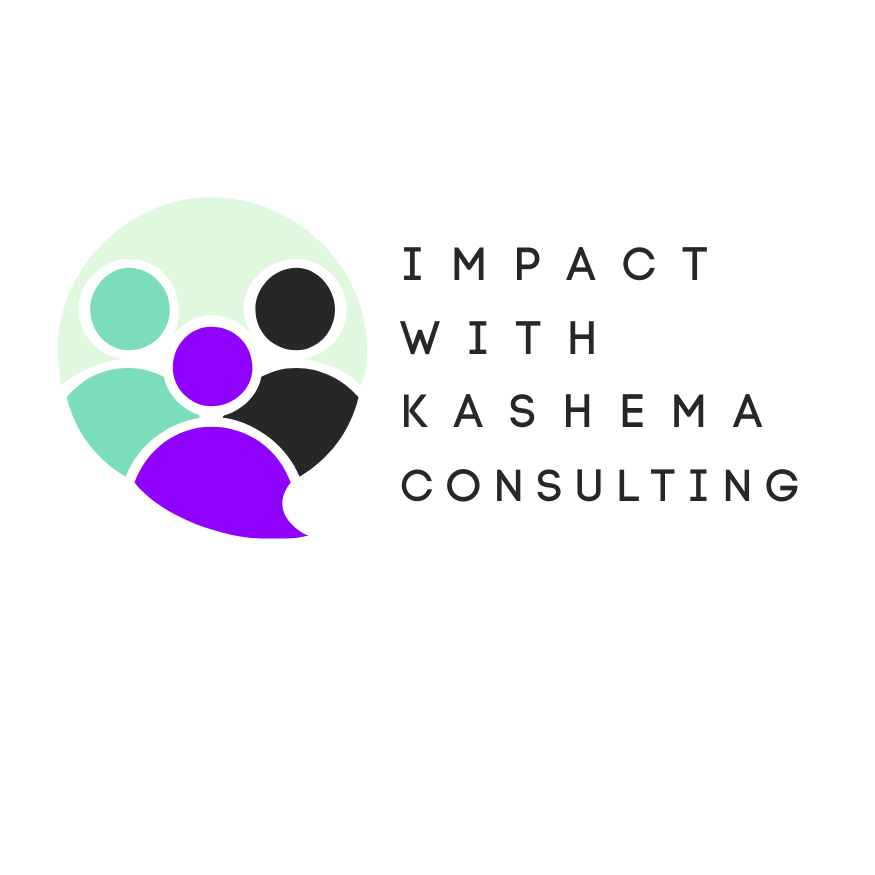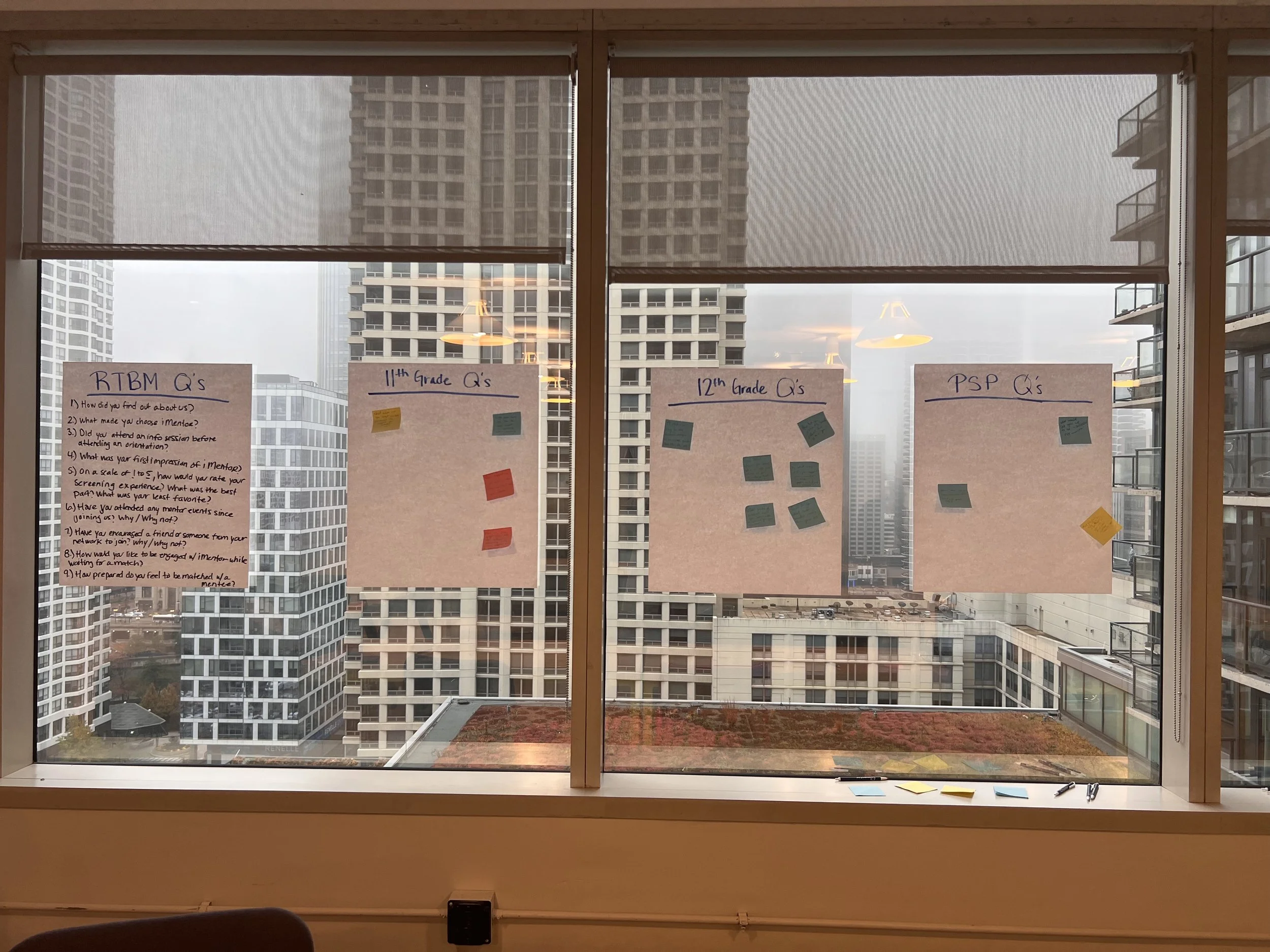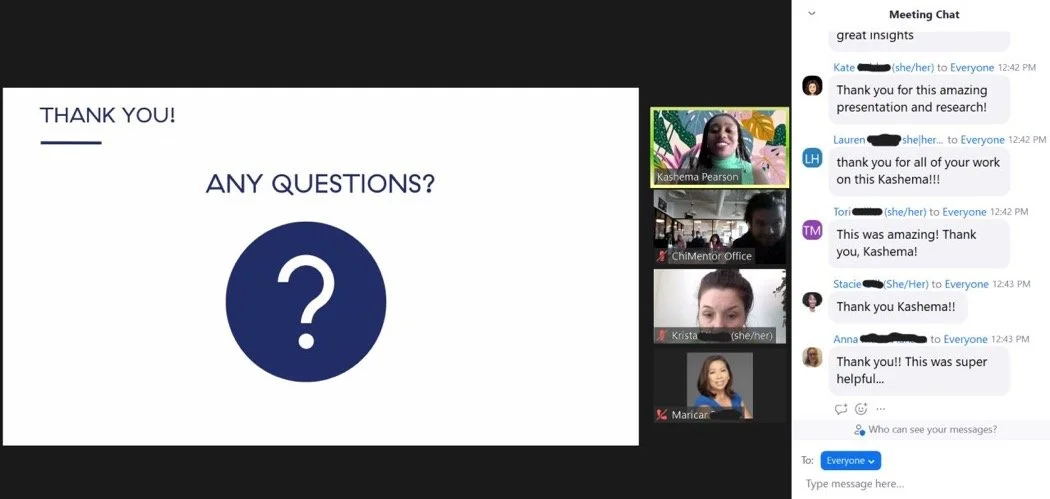PROJECT OVERVIEW
Why:
Every year, the iMentor Chicago team actively recruits over 500 professionals citywide to step into mentorship roles for CPS high school students. However, as various departments engage with mentors independently (and sometimes simultaneously), the organization faced challenges in comprehending the total mentor experience. Siloed workflows and limited cross-departmental exchanges hindered a holistic understanding of the mentorship program from the mentor perspective. This project was initiated to foster a shared understanding among teams regarding the mentor experience, enabling the design of more impactful programming based on expressed needs. Additionally, it sought to enhance communication and outreach strategies to better connect with mentors.
Goals of the research:
They want to reduce and improve communication methods to mentors
They want to develop better programming to equip mentors with the right knowledge to adequately support our students
They want to know and understand mentors pain points along their mentor journey
They want to know how to best engage mentors regarding building community and activating them to give and refer
Methodology:
Hosted 40 min one-on-one coffee chats with volunteers waiting to be matched with a student and mentors matched with 12th grade students.
Collaborating with colleagues.
Before conducting coffee chats with mentors, I held conversations with various departments who work directly with mentors to learn about their challenges of engaging mentors. I also collected possible interview questions from each team that would assist them with recruiting, training and activating mentors.
Interviewing mentors.
Selecting the right participants was critical to discovering the true experiences of mentors in the program. I invited mentors from various backgrounds and relationship experiences with their mentees. Interviews were conducted via zoom and participants were awarded with a starbucks gift card for their time.
Here is a quick breakdown of mentor participants:
RTBM Mentors (mentors waiting to be matched):
Career Industries: Accounting, Real Estate, Engineering, Consulting
Race: Black, White, Latinx
Gender: 2 Women, 2 Men
Age: 26 – 58 years old
12th Grade Mentors (mentors matched with 12th graders):
Career Industries: Banking, Youth Development, Market Research, Hospitality, Gaming
School Location: Phoenix STEM, North Grand, Crane Medical Prep
Race: Black, White, Latinx
Gender: 2 Women, 3 Men
Age: 25- 40 years old
Presenting research across teams.
Once I had assurance in the gathered data, the next step was to present it to both regional and national teams. Team members spanning different departments—fundraising, recruitment, program implementation, and curriculum development—participated in the Zoom session to hear insights directly from the mentors they regularly interact with.
During my presentation, I often alluded to specific examples shared by mentors during coffee chats to ensure teams had context and a full understanding of the information shared.
Recap of my findings and recommendations.
After dedicating extensive hours to reviewing interview recordings and pages of notes, I synthesized the data by pinpointing recurring comments and insights aligned with the research goals. To facilitate actionable steps for teams, I organized the findings into thematic categories, such as mentor-to-mentor connections, network referrals, mentor contributions, pair relationships, and preparedness + learning.
Here are a few examples of insights and recommendations. You can view the full presentation here.
Insights from RTBM Mentors (mentors waiting to be matched):
Incoming mentors do not understand the difference between info-sessions and orientations. Most believed they were all the same. A mentor who attended an info-session and orientation felt like doing both was a waste of time.
Some RTBM mentors refer their network to join them and some don’t. Those that do, usually share info to friends and colleagues via word of mouth. They assess who in their network would make a good fit for the program and make the ask.
Insights from 12th Grade Mentors (mentors matched with 12th grade students):
Mentors who have a strong pair relationship usually donate to iMentor. They have given through MC events (bought the “cover your cost” ticket), the iMentor Challenge, Giving Tuesday and their companies, who typically match donations.
Mentors who have students who are on top of their post-secondary plans discuss other topics and tasks (i.e. student loan debt, financial planning, sourcing scholarships, the importance of extracurricular activities, and networking) that are not discussed in depth within the curriculum.
Recommendations regarding RTBM Mentors (mentors waiting to be matched):
Instead of hosting both company info-sessions and orientations, host fast-track orientations that allows attendees to learn more about the organization/mentor experience and decide mid-way through if they want to stay to hear a more in-depth overview of the program and next steps to become a mentor.
Provide a network assessment checklist to mentors to help them determine who would make a great fit for the program. Additionally, equip mentors with a “how to guide” of setting up an info session at their job or organization.
Recommendations regarding 12th Grade Mentors (mentors matched with 12th grade students):
Develop targeted messaging to mentors who have a good strength of pair score during fundraising campaigns.
Currently, iMentor offers a standard curriculum for all pairs. Since mentors have varied experiences with their mentees, they should create student, mentor and relationship personas and reinforce guidance and support based on each persona. How do you support pairs that are doing really well and are exceeding benchmarks? How do you support pairs that are doing ok and are meeting benchmarks? How do you support pairs that are struggling and not meeting benchmarks? How do you support students who are disengaged vs engaged?


